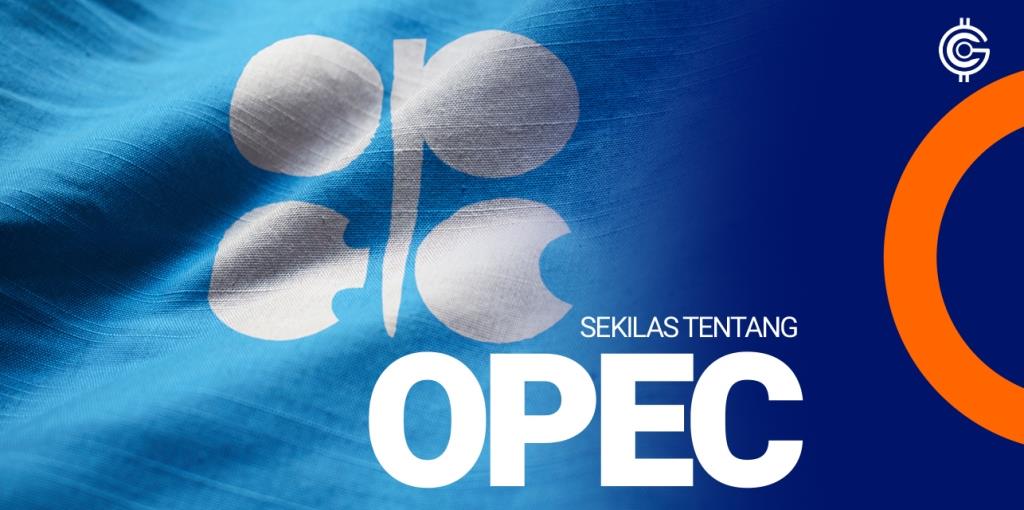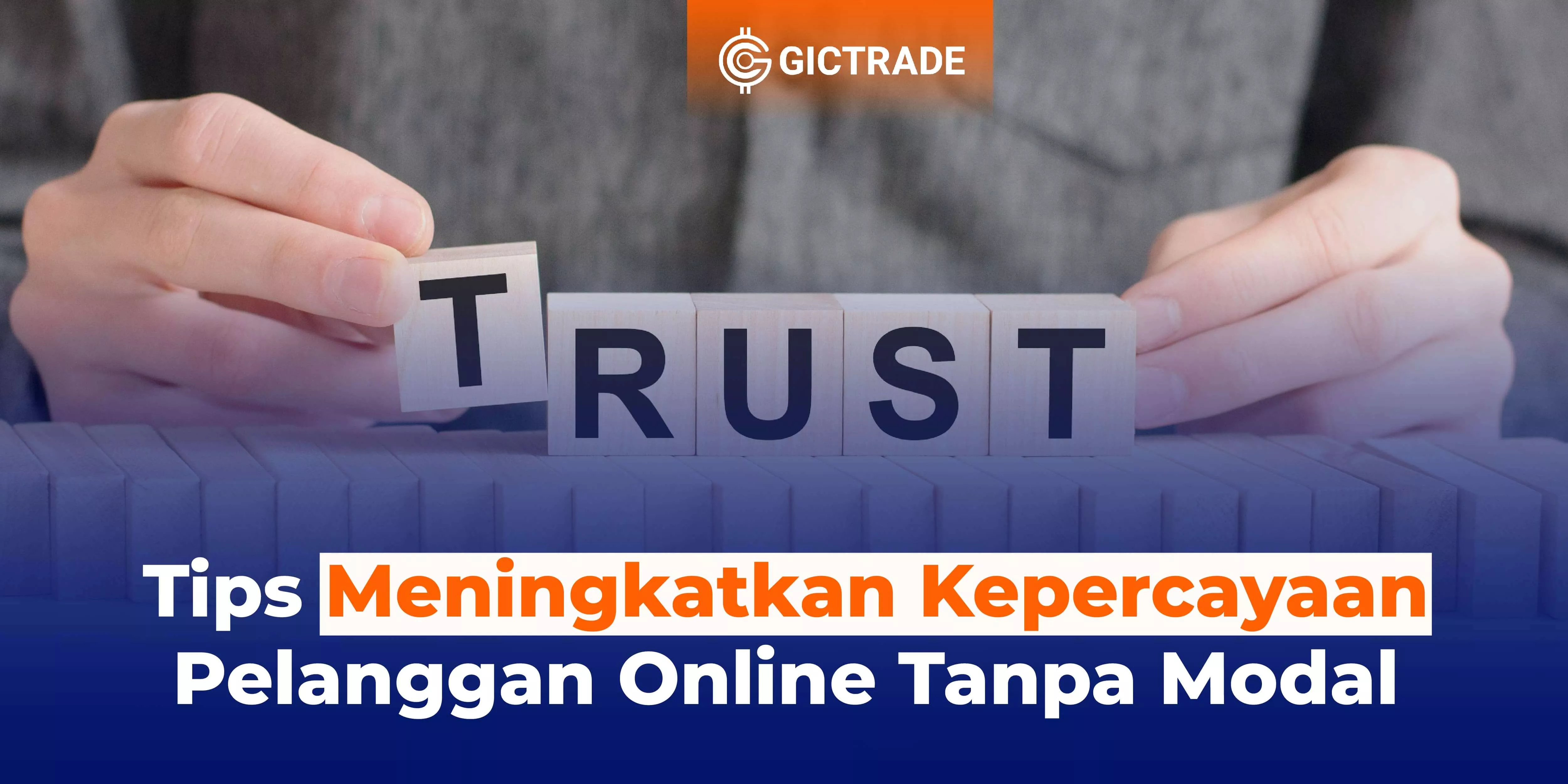The number of countries exporting goods and commodities makes them form and join an international organization. An example is an oil exporting organization. There are various kinds of countries that join an organization to facilitate this import and export activity.
OPEC stands for Organization of the Petroleum Exporting Countries. This organization is an association of exporters of commodities in the form of petroleum. The organization was established to coordinate the petroleum policies of its members to provide technical and economic assistance to member countries. For more details about OPEC, you can read the article below.
Register here to get maximum trading profits, so it's a profitable opportunity!

OPEC Is?
The Organization of the Petroleum Exporting Countries or commonly referred to as OPEC is an organization established on September 14, 1961 in Baghdad, Iraq. And since 1965 its headquarters has changed to Vienna, Austria. These OPEC members are Iran, Iraq, Kuwait, Saudi Arabia, and Venezuela as permanent members. And also Qatar, Libya, the United Arab Emirates, Algeria, Nigeria, Ecuador, Angola, Gabon, Equatorial Guinea, and Congo as members who can leave at any time depending on related factors.
The decision from OPEC itself has a significant impact on oil prices in the future. Oil and Energy Ministers from OPEC members will usually meet at least twice a year to coordinate their oil production policies. Despite its strength, OPEC cannot fully control oil prices.
Even in some countries, additional taxes will be imposed on gasoline and other oil-based end products to promote conservation. The price of this oil will be determined by the market and most oil prices will be determined by commodity traders.
History of OPEC
In an organization, there must be someone who initiates the organization. Venezuela was the first country to initiate the formation of OPEC by approaching other countries such as Iran, Gabon, Libya, Kuwait, Saudi Arabia in 1949 and advising them to exchange views and explore a wide road and closer communication between oil-producing countries.
For its first place, OPEC was in Geneva on January 21, 1961 and lasted until August 1966. However, for several possibilities and a lot of input, they finally moved to Vienna, Austria. OPEC was founded in Baghdad, triggered by a 1960 law created by U.S. President Dwight Eisenhower that urged quotas from Venezuelan and Persian Gulf oil imports such as the Canadian and Mexican oil industries.
Eisenhower acted by establishing national security, namely land access to energy supplies in wartime. Falling prices of world oil in the region, Venezuelan President Romulo Betancourt has reacted by trying to form alliances with oil-producing Arab countries as a strategy to protect the autonomy and competence of Venezuelan oil.
As a result, OPEC was established to consolidate and coordinate the policies of member countries as a continuation of what has been done. OPEC itself also has many main conditions, especially those imposed on their members, namely countries that are directly related to them must be crude oil exporters. Not only that, its members are required to have the same interests as countries that are already members of OPEC itself.
In addition, other members who want to initiate must also be approved by the majority of OPEC members. This main condition is intended for many OPEC members to work together in realizing peace among the many countries that support it, in order to get the same thinking about oil production.
OPEC Leaders
The OPEC Secretariat is led by the Secretary General who is the official representative of the organization. The Chief Executive Officer and also the secretariat carry out the affairs of the organization in accordance with the direction of the Board of Governors.
The Secretary-General is appointed by the Conference of Member States for a period of three years with a term of office that can be extended once for the same term. In the half century of the organization's history, this secretariat has been run by 22 secretaries-general from various countries.
The first Secretary General was H.E. Dr. Fuad Rouhani of Iran in 1961. Meanwhile, the current leader is HE Abdalla Salem El-Badri from Libya who has been leading since 2007.
With the support of staff in the Secretariat, the Secretary-General has made significant contributions to the development of the organization through the implementation of its policies and the dissemination of its objectives over the years.
Background of the formation of OPEC
There are two main reasons behind the formation of OPEC. The background of the first OPEC was that OPEC was established as a result of the slump in world oil prices in February 1959 which was the aftermath of the unilateral monopoly of the world's giant oil companies called The Seven Mayors by setting prices in the international market.
"The Tripoli Tehran Agreement" between OPEC and the private company in 1970 made the place for OPEC to fully set market prices. And the second from the background of OPEC is the increasing demand for world oil, especially in the sector in developed countries.
What is OPEC's task?
After knowing what OPEC itself is, we will learn what tasks OPEC will do. Based on article 2 of the OPEC Statute, the main objective of OPEC is to coordinate and unify the oil policies of member countries and determine the best steps to safeguard the interests of both individuals and collectives.
In addition, OPEC's task is to make plans for ways and measures to ensure the stability of oil prices in the international market with the aim of eliminating unnecessary losses and fluctuations. The goal of OPEC is to maintain and increase the role or position of oil as the main source of energy in achieving economic development.
What is OPEC's goal?
The goal of OPEC is to maintain oil prices and also to unilaterally reject the action of lowering oil prices by the largest oil companies called The Seven Major owned by Exxon, Texaco, Socal, Gulf, British Petroleum, and Shell.
Broadly speaking, OPEC's goals are to combine oil policies over member countries, meet world demand for oil, stabilize world oil prices so that there are no price fluctuations, establish policies to protect member countries, ensure a fair return of investor capital in the oil sector, maintain oil prices and also reject oil price reductions carried out by large companies as have been mentioned earlier.
The goal of OPEC in the economic field is to maintain oil prices and determine prices so that they can benefit producing countries. As for the purpose of establishing OPEC in the political field, it is to regulate relations with foreign oil companies or the governments of consumer countries.
OPEC policy
To achieve this goal, OPEC has made various policies as mentioned above, namely:
- Coordinating and unifying petroleum policies between member states.
- Unify petroleum policies among member countries.
- Establish appropriate strategies to protect the interests of member states.
- Determine policies to protect member states.
- Implementing ways to stabilize oil prices in the international market so that there are no price fluctuations.
- Ensuring a steady income for oil-producing countries.
- Ensuring oil supply for consumers.
- Guarantee a fair return of investor capital in the oil sector.
- Meeting the world's need for petroleum.
- Stabilizing world oil prices.
OPEC Member States
At the beginning of OPEC's formation, this organization had members of the five largest oil producing countries in the world, namely Iraq, Iran, Kuwait, Saudi Arabia, and Venezuela. The establishment of this organization of oil-exporting countries was triggered by a unilateral decision of the multinational oil company, The Seven Sisters in 1959/1960.
The Seven Sister is an oil company that dominates the oil industry and is able to set prices in the international market without caring about proposals from other countries. Before OPEC was formed, in 1949 Venezuela began approaching oil-producing countries such as Iran, Gabon, Libya, Kuwait, and Saudi Arabia with the aim of exchanging views and initiating the formation of OPEC.
Ten years later, after OPEC was founded, in 1970 OPEC and also The Seven Sisters signed an agreement known as The Tripoli Tehran Agreement. The result of this agreement places OPEC as an organization capable of fully setting the price of the international oil market.
Currently, there are 13 total members of OPEC, namely Venezuela (September 1960), United Arab Emirates (November 1967), Saudi Arabia (September 1960), Nigeria (July 1971), Libya (December 1962), Kuwait (September 1960), Iraq (September 1960), Iran (September 1960), Gabon (1975), Angola (January 2007), Congo (2018), Equatorial Guinea (2017), and also Algeria (1969). Indonesia also joined OPEC in 1962, but now it is no longer there.
The reason Indonesia is no longer a member of OPEC
Indonesia first joined OPEC in 1962. As a member country, Indonesia is also quite active in every activity carried out by OPEC, one of which is participating in determining and implementing OPEC's direction and policies. The goal is to stabilize the amount of oil production and prices in international trade. Indonesia's joining OPEC is actually a huge economic and political advantage for other countries.
However, this advantage is debatable. During joining OPEC, Indonesia must pay money that must be paid every year. Even if there is an OPEC meeting, Indonesia must also pay other costs, because it is followed directly by the Indonesian delegation. However, in 2008, Indonesia decided to exit the organization founded by the five countries.
The reason is because Indonesia is no longer an oil importing country, no longer an exporter as before. This happens because oil exploration and production activities are gradually decreasing, while consumption needs continue to increase. In addition, Indonesia's oil reserves have also decreased significantly. The decline in Indonesia's oil production can be seen in the last ten years, as in 1996, Indonesia's oil production was still around 548.64 million per barrel.
This amount of production is decreasing every year, the peak was in 2005, which was 387.65 million barrels. Since 2007, Indonesia's oil production has always been below 1 million bpd, even though the consumption rate continues to increase. With this condition, Indonesia has decided to no longer be active as an OPEC member.
Indonesia rejoined OPEC in 2014, when a new president was elected for Indonesia, again becoming an official member of OPEC. However, in 2016, Indonesia again came out citing the policy effects of OPEC's own history that wanted to reduce Indonesia's oil production.
The goal is to stop the decline in world oil prices. So this is the final decision regarding the approval of Indonesia's relationship with OPEC which finally chose to import its own petroleum and set many things for the finances of regional countries.
Is OPEC Part of a Cartel?
For those who don't know what a Cartel is, a Cartel is usually referred to as the Organization for Economic Co-operation and Development (OECD) which is a formal agreement to raise or set prices and reduce output to increase profits. This deal could be detrimental to consumers because it makes the product unavailable or too expensive. Historically, this cartel has been in the steel industry, rail transportation, and also vitamin D.
It is hoped that you will also continue to find out other information about OPEC itself. So that later the knowledge will continue to increase and know more about this multinational organization. Thus the discussion from GICTrade regarding the explanation "OPEC is? History, Duties and Objectives and Members". You can also find out other information about investments, commodities, and other finances, such as "Wall Street is the Center of the US Economy with Many Stories" only in the GIC Journal. Also make sure you deepen your forex knowledge at GICTrade, via the scalping ebook, and also NFP live trading.
Meanwhile, OPEC itself is usually used as an example of the cartel itself. Although there is some debate about whether OPEC is indeed a definitive economic proof of the cartel itself, these OPEC member countries exert a major influence on economic activities that focus on controlling oil production by influencing market prices.
Because natural gas can be produced with oil, some people view OPEC as an indirect natural gas cartel. In addition, a group of countries also formed the Forum of Gas Exporting Countries or commonly referred to as GECF which some people also refer to as gas-OPEC. After knowing what OPEC is, its history, background, duties and objectives, as well as which members are members of the Organization of the Petroleum Exporting Countries itself.
It is hoped that you will also continue to find out other information about OPEC itself. So that later the knowledge will continue to increase and know more about this multinational organization. Thus the discussion from GICTrade regarding the explanation "OPEC is? History, Duties and Objectives and Members". You can also find out other information about investments, commodities, and other finances, such as "Wall Street is the Center of the US Economy with Many Stories" only in the GIC Journal. Also make sure you deepen your forex knowledge at GICTrade, via the scalping ebook, and also NFP live trading.
 Last:
Last: 







